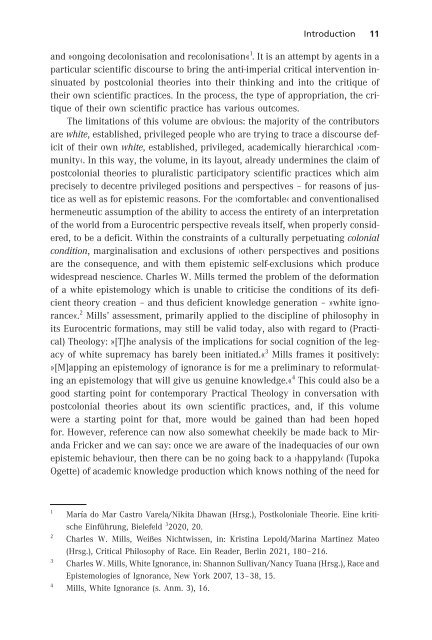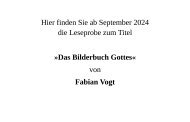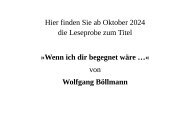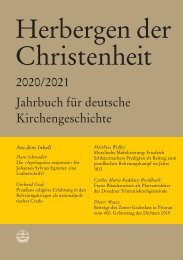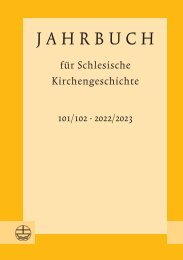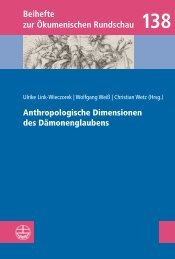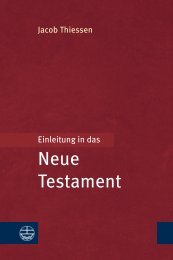Kristin Merle | Manuel Stetter | Katharina Krause (Hrsg.): Prekäres Wissen (Leseprobe)
Welche kritischen Analysen christlich-religiöser Symbole und kirchlicher Praxis sind nötig, um kulturelle Stereotype und hegemoniale Vorstellungen freizulegen? Inwiefern lassen sich postkoloniale und dekolonialisierende, aber auch rekolonialisierende Praktiken im Kontext des Religiösen und der Kirchen identifizieren? Mit diesen Fragen befassen sich die in diesem Band vorliegenden Beiträge. Versammelt sind theoretische Überlegungen wie empirische und historische Fallstudien im Zusammenhang von Problemstellungen und Konzepten postkolonialer Theorien. Es zeigt sich: Wissen ist prekär. In den vielschichtigen Zusammenhängen seines Erwerbs wie seiner Organisation geht es immer um Praktiken der Legitimierung, Sanktionierung und Priorisierung und damit um die Gestaltung von Machtverhältnissen.
Welche kritischen Analysen christlich-religiöser Symbole und kirchlicher Praxis sind nötig, um kulturelle Stereotype und hegemoniale Vorstellungen freizulegen? Inwiefern lassen sich postkoloniale und dekolonialisierende, aber auch rekolonialisierende Praktiken im Kontext des Religiösen und der Kirchen identifizieren?
Mit diesen Fragen befassen sich die in diesem Band vorliegenden Beiträge. Versammelt sind theoretische Überlegungen wie empirische und historische Fallstudien im Zusammenhang von Problemstellungen und Konzepten postkolonialer Theorien. Es zeigt sich: Wissen ist prekär. In den vielschichtigen Zusammenhängen seines Erwerbs wie seiner Organisation geht es immer um Praktiken der Legitimierung, Sanktionierung und Priorisierung und damit um die Gestaltung von Machtverhältnissen.
Sie wollen auch ein ePaper? Erhöhen Sie die Reichweite Ihrer Titel.
YUMPU macht aus Druck-PDFs automatisch weboptimierte ePaper, die Google liebt.
Introduction 11<br />
and »ongoing decolonisation and recolonisation« 1 .Itisanattemptbyagents in a<br />
particular scientific discourse to bring the anti-imperial critical intervention insinuated<br />
by postcolonial theories into their thinking and into the critique of<br />
their own scientific practices. In the process, the type of appropriation, the critique<br />
of their own scientific practice has various outcomes.<br />
The limitations of this volume are obvious: the majority of the contributors<br />
are white, established, privileged people who are trying to trace adiscourse deficit<br />
of their own white, established, privileged, academically hierarchical ›community‹.<br />
Inthis way, the volume, in its layout, already undermines the claim of<br />
postcolonial theories to pluralistic participatory scientific practices which aim<br />
precisely to decentre privileged positions and perspectives – for reasons of justice<br />
as well as for epistemic reasons. For the ›comfortable‹ and conventionalised<br />
hermeneuticassumption of the ability to access the entirety of an interpretation<br />
of the world from aEurocentricperspective reveals itself, when properly considered,<br />
to be adeficit. Within the constraints of aculturally perpetuating colonial<br />
condition, marginalisation and exclusions of ›other‹ perspectives and positions<br />
are the consequence, and with them epistemic self-exclusions which produce<br />
widespread nescience. Charles W. Mills termed the problem of the deformation<br />
of awhite epistemology which is unable to criticise the conditions of its deficient<br />
theory creation – and thus deficient knowledge generation – »white ignorance«.<br />
2 Mills’ assessment, primarily applied to the discipline of philosophy in<br />
its Eurocentric formations, may still be valid today, also with regard to (Practical)<br />
Theology: »[T]he analysis of the implications for social cognition of the legacy<br />
of white supremacy has barely been initiated.« 3 Mills frames it positively:<br />
»[M]apping an epistemology of ignorance is for me apreliminary to reformulating<br />
an epistemology that will give us genuine knowledge.« 4 This could also be a<br />
good starting point for contemporary Practical Theology in conversation with<br />
postcolonial theories about its own scientific practices, and, if this volume<br />
were astarting point for that, more would be gained than had been hoped<br />
for. However, reference can now also somewhat cheekily be made back to Miranda<br />
Fricker and we can say: once we are aware of the inadequacies of our own<br />
epistemic behaviour, then there can be no going back to a ›happyland‹ (Tupoka<br />
Ogette) of academic knowledge production which knows nothing of the need for<br />
1<br />
2<br />
3<br />
4<br />
María do Mar Castro Varela/Nikita Dhawan (<strong>Hrsg</strong>.), Postkoloniale Theorie. Eine kritische<br />
Einführung, Bielefeld 3 2020, 20.<br />
Charles W. Mills, Weißes Nichtwissen, in: <strong>Kristin</strong>a Lepold/Marina Martinez Mateo<br />
(<strong>Hrsg</strong>.), Critical Philosophy of Race. Ein Reader, Berlin 2021, 180–216.<br />
Charles W. Mills, White Ignorance, in: Shannon Sullivan/Nancy Tuana (<strong>Hrsg</strong>.), Race and<br />
Epistemologies of Ignorance, New York 2007, 13–38, 15.<br />
Mills, White Ignorance (s. Anm. 3), 16.


